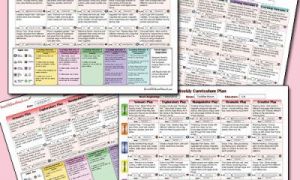Nursery rhymes provide a lot of learning opportunities to children. Nursery rhymes also play an important role in children's language skills by hearing sounds. It helps them to develop an ear for language Rhythms and rhymes also help to understand words syllables. The following article provides information on the Importance Of Nursery Rhymes, the Key Benefits and Strategies To Implement Nursery Rhymes.
The Importance Of Nursery Rhymes
Nursery Rhymes encourage children to develop phonemic awareness. It helps children to pronounce words. Usually, nursery rhymes are full of interjections, and funny words and that helps children to increase their vocabulary. Nursery rhymes also have a repetition of different words which helps them to repeat words with the aim to improve their speech. It also teaches intonation and correct pronunciation. Nursery rhymes improve memory and articulation of different words. Repeating the same lines and words helps them to remember the words and also their use and improve their pronunciation. Nursery rhymes help children’s brains to differentiate between syllables and also identify similarities between words that rhyme or words that begin with the same sounds.
The Benefits of Nursery Rhymes
Physical Development - Usually, in learning and care centres childhood educators teach nursery rhymes with related body movements. It helps with the physical development of children. Physical participation in rhymes helps to improve fine and gross motor skills as well as balance, coordination and the skills needed to follow simple instructions.
Numeracy - With the nursery rhymes children first get introduced to numerics and related objects with it. It makes them prepare to participate in different types of numeric activities.
Creativity - Nursery rhymes also help to boost creative development. With rhymes, children develop their imagination and also help them to think and be creative. So, rhymes are the first things that encourage a child’s creative development. Children also learn to understand abstract concepts like big, small, in front, behind, first, and last. They can associate these words in real life while speaking which improves their vocabulary.
Social Development - It helps to improve the listening skills of a child thus taking part in the overall social development of children. When you tell nursery rhyme because of the rhyming words, the storyline, and your pronunciation, children will be lured into the story and pay attention to you. This helps them make sense of the story and at the same time makes them good listeners.
Language Development - Rhythm and repetition encourage children to develop early language literacy skills. The repeated words in rhyme, improve the skills and ideas that are important for early brain development because it makes a strong and secure foundation in the early language learning process. Nursery rhymes have simple rhythmic patterns to memorise the words and repetition of them helps children to correct their speech. These simple rhymes and rhythms give an idea about the world around them.
Rhymes with simple and easy beats help them to understand the differences in pitch, melody, and repeated sound patterns. The repetition of words and various tones helps the child to anticipate each phrase of the song and join in with the singing and actions. With the nursery rhymes children first get introduced to numerics and related objects with it. It makes them prepare to participate in different types of numeric activities.
Other Benefits include:
- Learn new words
- Increase vocabulary
- It improves comprehension
- Make a good listener
- Able to understand voice modulation
- Recognise differences in melody - such as verse and chorus
- Develop knowledge of intonations of language
- Increase the memory
- Physical development
- Make the socialise
- Introduce numeric skills.
- Make creative development
- Boost up imagination
- Make aware of the world around them
- Improve communication skill
- Release stress and maintain attention and concentration
- Develop a love of books and stories
- Understand the culture in which they live
- Connect to the past
- It always needs to remember that children love silly easy words in a simple rhythm that is why from our past generations the rhymes are continuing their journey and hope to continue in the future also.
Strategies To Implement Nursery Rhymes
- Chose a simple rhyme and try to make a particular time and place when you want to practice those rhymes with children e.g morning group time.
- You can choose one or two rhymes for a particular week and make sure you repeat those rhymes two-three times each day in a week.
- You can share a picture book and rhyme-related props such as felts and puppets that you can use while singing along (great for babies and toddlers).
- Never forget to associate body movement with rhymes that will make the rhymes interesting and also help in the physical development of a child.
- You can use the e-board behind you where the picture will be shown and accompany you with rhymes.
- Sing rhymes based on themes/topics or concepts. This helps introduce new ideas to children and helps them understand what they are learning just through the rhyme itself.
Further Reading
Free Rhymes Posters - Posters of popular nursery rhymes with rhymes and matching pictures.
Rhymes and Songs - A variety of rhymes and songs including action rhymes that children can learn. Lyrics and videos are available.
Surprisingly Dark Meanings Of Classic Nursery Rhymes - The following article provides information on the hidden meaning and origins of nursery rhymes.
Reference:
Benefits Of Nursery Rhymes, Playgroup NSW
To know more, please click https://www.playgroupnsw.org.au/ParentResources/ParentingYoungChildren/benefits-of-nursery-rhymes







 Open ended questions cannot be responded to with one word answers such as yes or no. These types of questions enables a child to provide
Open ended questions cannot be responded to with one word answers such as yes or no. These types of questions enables a child to provide During your child’s preschool years, an important milestone begins to emerge. This is the development of pre-writing skills. Pre-writing skills are used to encourage, develop
During your child’s preschool years, an important milestone begins to emerge. This is the development of pre-writing skills. Pre-writing skills are used to encourage, develop Open ended materials enables children to play freely. They are objects that have no rules to follow, use or function. Raw materials that can be
Open ended materials enables children to play freely. They are objects that have no rules to follow, use or function. Raw materials that can be An Acknowledgment of the Country is a way of showing respect for the Traditional Owners and can be given by both non-Indigenous people and Aboriginal
An Acknowledgment of the Country is a way of showing respect for the Traditional Owners and can be given by both non-Indigenous people and Aboriginal Language plays an important role in a child’s development. It enables a child to communicate effectively with their family, learn at school, socialize with friends,
Language plays an important role in a child’s development. It enables a child to communicate effectively with their family, learn at school, socialize with friends, Like adults, children have to deal with their own stress in life. Moving house, starting a new school, preparing for a new sibling - these are
Like adults, children have to deal with their own stress in life. Moving house, starting a new school, preparing for a new sibling - these are Playdough is such a versatile material. It provides numerous benefits to children as they manipulate it, it is safe and soothing and provides children with
Playdough is such a versatile material. It provides numerous benefits to children as they manipulate it, it is safe and soothing and provides children with Teaching children about sustainability enables them to appreciate and respect the natural environment. Early childhood services can provide meaningful hand on learning experiences in order
Teaching children about sustainability enables them to appreciate and respect the natural environment. Early childhood services can provide meaningful hand on learning experiences in order Recycling is an important concept that teaches children to care for the environment. It encourages children to be responsible and show a growing appreciating for
Recycling is an important concept that teaches children to care for the environment. It encourages children to be responsible and show a growing appreciating for Incursions provide children with the opportunity to explore meaningful learning experiences in the comfort of their early childhood service. The following provides a directory of
Incursions provide children with the opportunity to explore meaningful learning experiences in the comfort of their early childhood service. The following provides a directory of


